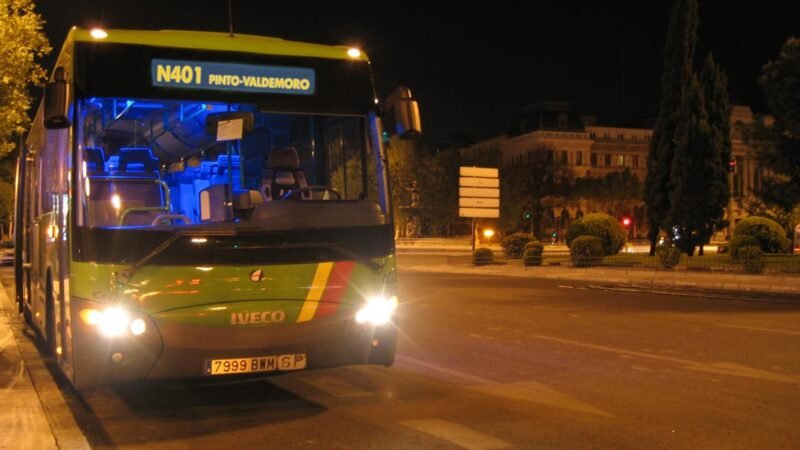Ayuso presenta estrategia de invalidez con 316 medidas para una atención más ágil: «Cada vida es única»
«The community of Madrid is a popular human region, where everyone has a voice and everyone is heard. We value freedom, personal autonomy, and dignity from conception to the last breath,» said the head of the autonomous government.
In the Law, attended by social resources users and representatives from sector entities, Díaz Ayuso highlighted the work of professionals in various fields involved in this document, reflecting the main actions to be implemented in the next four years in three fundamental axes: early care; Intellectual, physical, and sensory disabilities; and severe and long-lasting mental illnesses.
Horizon 2028 will reduce waiting times for disability recognition thanks to two new basic centers, reaching a total of 12 of these facilities in the public network. They will be located in the north: Sierra’s vest and the south of the region, covering over a million people in Madrid.
Furthermore, records of patients with amyotrophic lateral sclerosis (ALS) or other severe illnesses, as well as minors, will continue to be a priority. In this regard, all assessments of children aged 0 to 6 will be consolidated into a single appointment, streamlining procedures for families.
Another measure that will provide greater efficiency and agility to the regional administration is that the Ministry of Family, Youth, and Social Affairs will renew disability status automatically for individuals who have already been recognized. The SMS of this process will inform the citizen with a high-level link, allowing them to obtain the certificate online. Additionally, they will also receive an automatic reminder message of their schedules.
Furthermore, a call center will assist citizens in improving appointments and resolving doubts about assessments, disabilities, parking cards for vehicles, workforce guidance, rehabilitation treatments, and square requests, among others. Additionally, the regional government continues to develop a future registry of wills that will cater to all types of disabilities, allowing each individual to record their life plan.
54 new classroom spaces
Díaz Ayuso emphasized her commitment to special education, with the opening of three new centers in the municipalities of Móstoles, El Escorial, and the Villaverde district. She also announced an additional 54 classrooms for the upcoming academic year, adding to the 106 currently in operation. These measures will be complemented by enhanced teacher training, improvements in center accessibility, and increased opportunities for these students to access early childhood education and school scholarships.
Moreover, the president highlighted the establishment of the first public residence for individuals with intellectual disabilities in the early aging phase, in the Carabanchel district, which will accommodate 70 residents; and the first public training house for transitioning to independent living, in Hortaleza.
The community of Madrid boasts a robust network for severe and long-lasting mental illnesses, with 7,088 seats and 232 centers, which will add more specialized resources and services to provide the best care. Regarding workforce integration, an annual investment of over 90 million euros will be allocated to special employment centers and various job incentives. Additionally, the Employment Office in Goya will specialize in this field.
The Horizon 2028 strategy will continue to operate, ensuring that the healthcare system increasingly meets the needs of individuals with disabilities by developing specific care circuits, adapting infrastructure, enhancing professional training, and promoting research in rare diseases, epilepsy, and early aging.
Accessibility in transportation and mobility
Another crucial aspect is mobility, essential for autonomy. The Metro Accessibility and Inclusion plan, in effect until 2028 and designed with the Spanish Committee of People with Disabilities (CERMI), incorporates key measures such as installing elevators, tactile pavements, Braille signage, and light and lightweight screen opening systems. Currently, Metro has 1,710 escalators and 559 elevators.
The specific training program for autonomous use of the subway will continue to be promoted, especially tailored for individuals with intellectual or developmental disabilities, aiming to enhance their independence. This program has already enabled over 1,700 beneficiaries to train and complete 150 sessions.
Similarly, in collaboration with the Federation of Municipalities of Madrid (FMM), regulations will be updated to expedite quicker issuance of vehicle parking cards for individuals with low mobility.
In the realm of justice, the role of the judicial facilitator will be further strengthened, a crucial figure in ensuring equal access to the system. The community of Madrid has been a pioneer in regulating and implementing this role, allowing individuals with intellectual or developmental disabilities to receive necessary support during legal processes.
New digital applications
The Madrid government will encourage the use of the My112 app to ensure accurate location and prompt emergency response, incorporating voice features in public applications to enhance accessibility, such as the virtual health card and disability card. Efforts are already underway to simplify the reading of all procedures that impact them.
In the fields of culture and sports, the commitment to providing accessible offerings stands out, for instance, allowing companions of individuals with reduced mobility or dependence to access the Canal theaters and ensuring reservations for those using wheelchairs at all performances. Additionally, entry to Madrid’s basins is free for both them and their companions.







